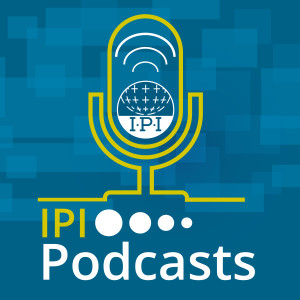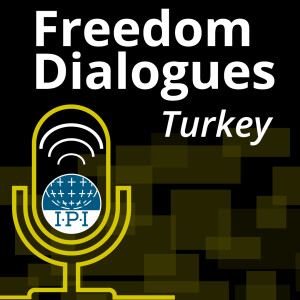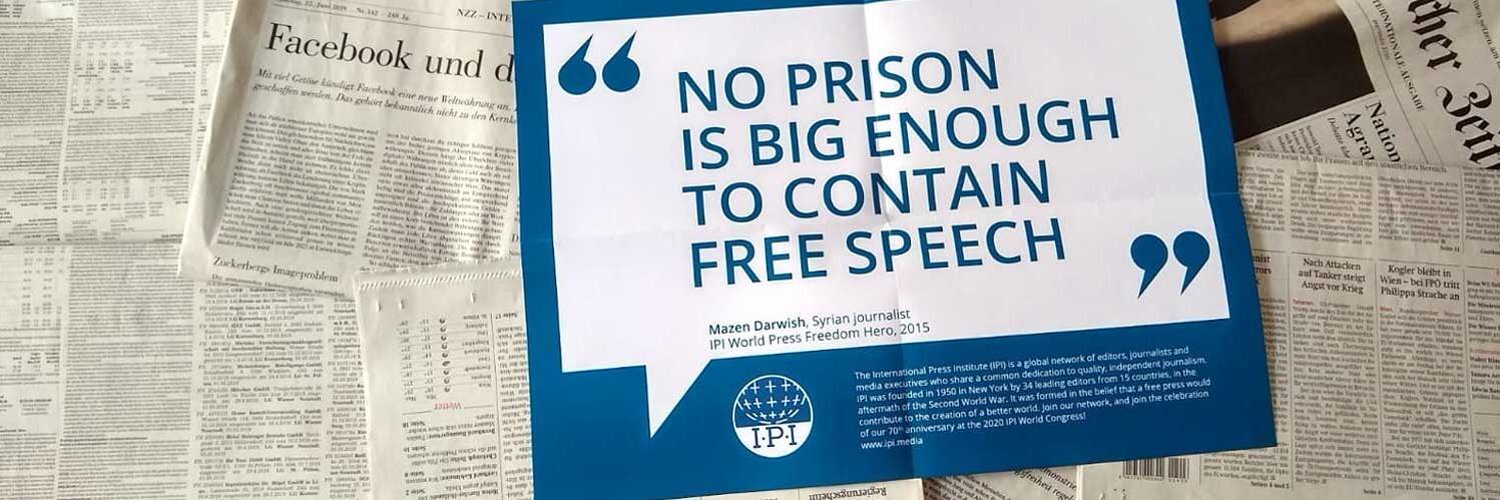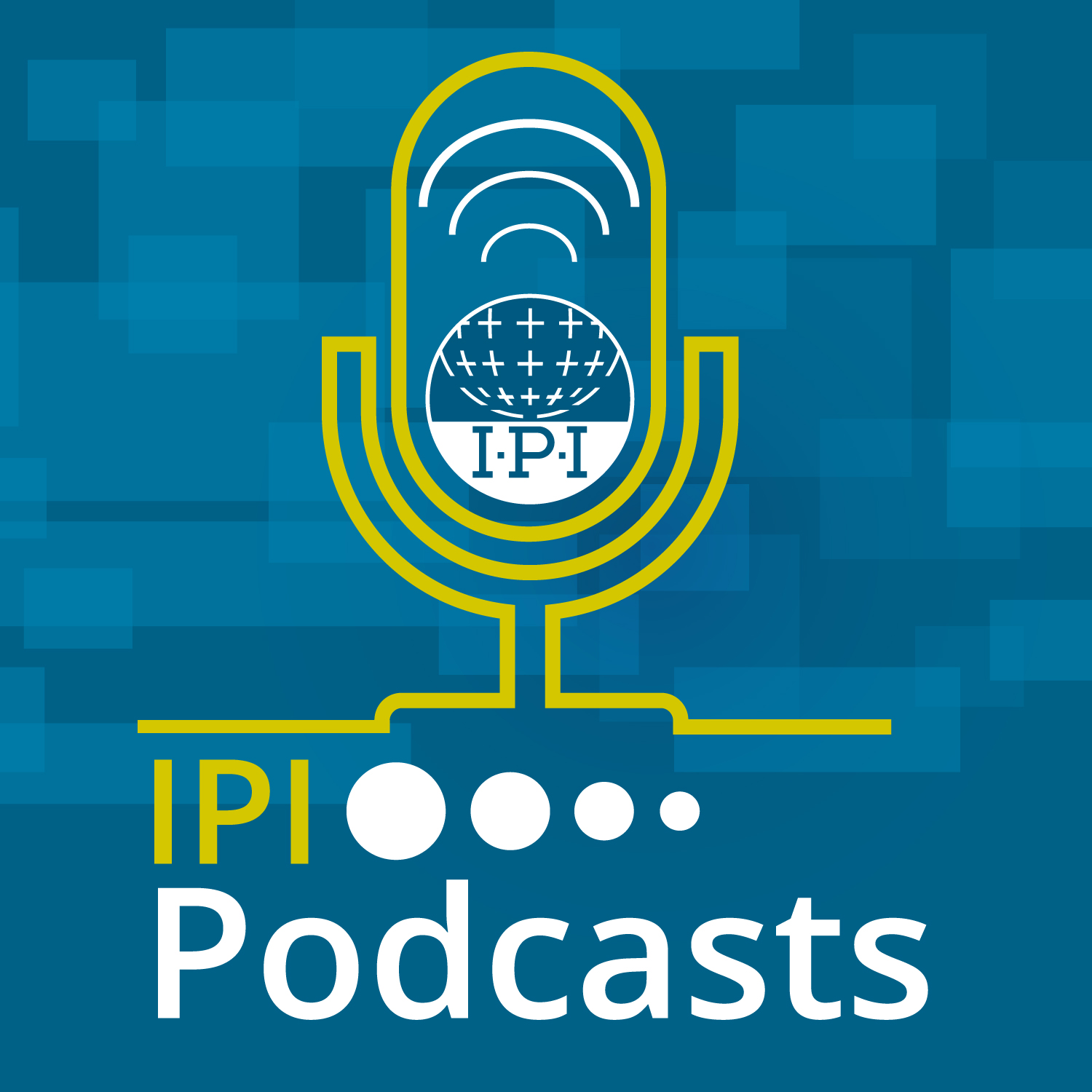Episodes

Friday Feb 12, 2021
The Press Freedom Files: Anti-press sentiment in The Netherlands
Friday Feb 12, 2021
Friday Feb 12, 2021
The second episode of IPI’s podcast ‘The Press Freedom Files’ sheds some light over the causes and consequences of the sudden growth of both online and physical attacks against reporters, with female and minority journalists especially targeted, in a country widely known for its progressive and liberal spirit. Guests Clarice Gagard, a prominent Dutch journalist targeted with online abuse; and seasoned journalist Peter ter Velde, manager of the initiative Press Safety, talk with IPI Head of Digital Communications Javier Luque.

Tuesday Dec 29, 2020
Tuesday Dec 29, 2020
Host: Cansu Çamlıbel | Konuk: Murat Yetkin
Özgür Sohbetler'in on dördüncü bölümünde Cansu Çamlıbel, Radikal ve Hürriyet gazetelerinde çalışmış, bir dönem Hürriyet Daily News gazetesinin genel yayın yönetmenliği yapmış, ve şu anda Yetkin Report adlı haber sitesini yürüten gazeteci Murat Yetkin’i ağırladı. Yetkin, zehirlenmiş bir medya ortamında bağımsız kalmanın lüks şartlarını ve temel prensipleri anlattı.
Çalışkanlığın ve temel gazetecilik prensiplerine sadık kalmanın önemini vurgulayan Yetkin, 2005-2006 yıllarında Genel Kurmay tarafından hazırlanan bazı basın mensuplarını fişleme listelerinin ortaya çıktığını anlattı. “Burada askerden yana ve askere karşı listeleri oluşturulmuş. Bunların yanı sıra, bir de Ara Kategori diye bir bölüm var, ve o bölümde bir kişi var o da benim. Karşısındaki açıklamada da; ‘Hırslı ve başarılıdır. Dikkatle yaklaşılması lazımdır,’ deniyor. Bu benim için meslek hayatımdaki en büyük madalyadır.”
Sohbette değinilen konu başlıklarından bazıları şöyle:
- Yetkin Report’un çıkışı ve öyküsü
- Bağımsız mecraların ve basında bireysel çabaların geleceği
- Alternatif medyanın haber merkezlerine dönüşecek destekten yoksunluğu
- Haber kaynaklarına erişimin zorluğu ve önemi
- Kaliteli ve doğru gazeteciliğin prensipleri ve kırmızı çizgileri
- AB uyum reformları gereğince özgürleştirilmesi gereken pek çok alanın daraltılması
Bu kayıt, Avrupa Birliğinin maddi desteği ile hazırlanmıştır. İçerik tamamıyla Uluslararası Basın Enstitüsü (IPI) sorumluluğu altındadır ve Avrupa Birliğinin görüşlerini yansıtmak zorunda değildir.

Monday Dec 21, 2020
Monday Dec 21, 2020
Host: Cansu Çamlıbel | Konuk: Ayşegül Doğan
Özgür Sohbetler'in on üçüncü bölümünde Cansu Çamlıbel, Demokratik Toplum Kongresi (DTK) faaliyetlerine katıldığı için “silahlı terör örgütü kurmak ve yönetmek” suçlamalarıyla 22,5 yıla kadar hapis cezası istenen ve ardından 7 Aralık’ta beraat beklerken örgüt üyeliği suçlamasıyla 6 yıl 3 ay hapis cezasına çarptırılan gazeteci, haber sunucusu Ayşegül Doğan’ı konuk ediyor.
Ceza dosyasında, DTK’nin beş farklı komisyonunda eş zamanlı olarak çalıştığı iddia edilen Doğan için, 2012 yılında katılamadığı bir çalıştaya moderatör olarak davet edilmesi, bir Kürt kadın konferansına katılımı, yaptığı ve verdiği söyleşiler, yayınlar, usulsüz yapılan bazı telefon dinlemelerinden alınan bilgiler suç olarak görüldü.
2016 yılında KHK ile kapatılan IMC TV’de çalışırken haftada 4 akşam yayın yaptığını vurgulayan Doğan, “böyle yoğun bir dönemde, bırakın DTK’yi, herhangi bir sivil toplum kuruluşunda veya başka bir aktivizm içerisinde bulunabilecek vaktim yoktu zaten... Ayrıca gazetecilik yaparken bir yandan da siyasi angajman içerisinde olmak bana göre meslek etiği açısından doğru bir şey değil.”
Sohbette değinilen konu başlıklarından bazıları şöyle:
- Basit gazetecilik faaliyetlerinin mahkemelerce terör faaliyeti olarak kodlanması
- Doğan’a açılan dava ve duruşmanın iç yüzü; usulsüz dinlemeler, çürütülen deliller, Yargıtay ve AİHM içtihatlarının hiçe sayılması ve ceza
- 2015 yılına kadar süren barış sürecinde resmi olarak yapılan gazetecilik faaliyetlerinin, sürecin sona ermesinin ardından suçlama konusu olması
- Verilmek istenen mesaj: bir dönem resmi olarak yürütülen barış sürecinin unutturulmak istenmesi
- Kürt meselesine bakışta ve özgürlükçü talepleri olanlara ilişkin hükümetlerin değişmeyen ısrar ve yaklaşımı
- Türkiye’de hukuk davaları öngörülebilirliğini kaybetmesi
Bu kayıt, Avrupa Birliğinin maddi desteği ile hazırlanmıştır. İçerik tamamıyla Uluslararası Basın Enstitüsü (IPI) sorumluluğu altındadır ve Avrupa Birliğinin görüşlerini yansıtmak zorunda değildir.

Thursday Dec 10, 2020
(with Emma Sinclair-Webb) Turkey’s political atmosphere shapes rights violations
Thursday Dec 10, 2020
Thursday Dec 10, 2020
Host: Cansu Çamlıbel | Guest: Emma Sinclair-Webb
In this twelfth episode, host Cansu Çamlıbel and her guest Emma Sinclair-Webb, Turkey director for Human Rights Watch (HRW), discussed Turkey’s free expression violations as part of wider human rights problems and the polarized political atmosphere that shapes the rights violations.
According to Sinclair-Webb, Turkey already has so much on its plate in terms of human rights problems. The coronavirus pandemic only added to that and shows how the Turkish government instrumentalized a public health crisis to violate many rights.
From the parole law in March to the social media regulation in October, Sinclair-Webb stressed that the government has used its parliamentary majority to rush through highly problematic laws that have only broadened the human rights problems in the country.
Topics covered in the podcast include:
- The link between political rhetoric and human rights violations
- Lack of access to official data on human rights violations
- Social media law and other problematic laws that deepen Turkey’s free expression problems
- Rights violations left uninvestigated in southeastern Turkey
- Problems journalists reporting on the rights violations face
This content was produced with the financial support of the European Union. Its contents are the sole responsibility of IPI and do not necessarily reflect the views of the European Union.

Wednesday Dec 02, 2020
(Melis Alphan) Türkiye'nin demokratikleşmesi için gereken: Hak gazeteciliği
Wednesday Dec 02, 2020
Wednesday Dec 02, 2020
Host: Cansu Çamlıbel | Konuk: Melis Alphan
Özgür Sohbetler'in on birinci bölümünde, Cansu Çamlıbel mikrofonu Türkiye'de kadın, çocuk ve çevre konularına odaklanan gazeteci Melis Alphan'a uzatıyor. Daha önce Cumhuriyet, Radikal, Milliyet ve Hürriyet gibi önemli gazetelerde çalışmış olan Alphan, Türkiye'nin demokratikleşmesi için hak gazeteciliğine ve insanları ayrıştırmayan, ötekileştirmeyen, hedef göstermeyen, sıfat yüklemeyen doğru gazetecilik yapmanın gerekliliğine değiniyor.
2015'te resmi olarak düzenlenen Newroz kutlamasından bir fotoğrafı sosyal medyada paylaştıktan 5 yıl sonra hakkında terör soruşturması açıldığını öğrenen Alphan, “Bu fotoğrafı paylaştığımdan kimsenin yeni haberi olmadı. O nedenle ‘neden şimdi?’ sorusu önem kazanıyor,” dedi.
Sohbette değinilen konu başlıklarından bazıları şöyle:
- Melis Alphan’ın gazetecilik hikayesi
- Karşılaştığı online saldırılar ve troller
- Hakkında açılan ‘’terör örgütü propagandası’’ davası
- Hak gazeteciliğinin gereklilikleri ve önemi
- Kadın gazetecilere bakış ve gazeteciliği çevreleyen genel baskılar
Bu kayıt, Avrupa Birliğinin maddi desteği ile hazırlanmıştır. İçerik tamamıyla Uluslararası Basın Enstitüsü (IPI) sorumluluğu altındadır ve Avrupa Birliğinin görüşlerini yansıtmak zorunda değildir.

Thursday Nov 26, 2020
Thursday Nov 26, 2020
Host: Cansu Çamlıbel | Konuk: İsmail Saymaz
Özgür Sohbetler'in onuncu bölümünde, Türkiye’nin önemli araştırmacı gazetecilerinden İsmail Saymaz, sosyal medya yasası ile hükümetin asıl amacını, hükümete yakın holding ve işadamlarının devraldığı ana akım medya kurumları için oluşturulan havuz medyasının ekonomik olarak sürdürülemez oluşunu ve bu süreçte gazetecilik adına kaybedilen mesleki potansiyelin ve kaynağın sebeplerini anlatıyor.
Radikal ve Hürriyet gazetelerinde çalışan ve derin devlet, dini tarikatlar ve yolsuzluk üzerine yaptığı araştımaların yayımlandığı pek çok kitabın yazarı olan İsmail Saymaz, “Kamu kaynaklarını sömürerek, kamuya hiç bir faydası olmayan bir yayıncılık yapan bu [yanlı] kurumların sürdürülebilir olduğunu sanmıyorum,” diyor.
Sohbette değinilen konu başlıklarından bazıları şöyle:
- Sosyal medya yasasının çokseslilik açısından kritik önemi
- Ana akım medyanın kontrolü ve çöküşü
- Oluşturulan medya havuzunun ekonomik olarak sürdürülemez oluşu
- Deneyimli, kalifiye gazetecilerin meslekten uzaklaştırılması
- Genç gazetecileri bekleyen mesleki sorunlar
Bu kayıt, Avrupa Birliğinin maddi desteği ile hazırlanmıştır. İçerik tamamıyla Uluslararası Basın Enstitüsü (IPI) sorumluluğu altındadır ve Avrupa Birliğinin görüşlerini yansıtmak zorunda değildir.

Wednesday Nov 25, 2020
(Cüneyt Özdemir) Sosyal medyanın zorunlu dönüşümü: Yeni akım gazetecilik
Wednesday Nov 25, 2020
Wednesday Nov 25, 2020
Host: Cansu Çamlıbel | Konuk: Cüneyt Özdemir
Türkiye’de medya ve artık daha çok da sosyal medya, hayatın her alanında dilin yeniden üretildiği ve sosyal medya ekosisteminde üretilen bu dil üzerinden toplumsal uzlaşma ya da kutuplaşmaların mümkün olabildiği yegane ortam.
Özgür Sohbetler'in dokuzuncu bölümünde, 30 yıllık gazeteci ve haber sunucusu Cüneyt Özdemir, televizyon ekranlarından çevrimiçi yayıncılığa geçişteki yolculuğunu ve nedenlerini anlatıyor. Özdemir'in çok izlenen YouTube kanalını açmasına Türkiye'nin değişen medya ortamında ne gibi koşulların sebebiyet verdiğini paylaşıyor.
CNN Türk, Kanal D el değiştirmeden önce bağımsız ve önemli ana akım haber kanallarında çalışan Özdemir, "Gazetecilikte eğer ekonomik özgürlüğünüz yoksa, editöryel özgürlüğünüz de yok," diyor.
Sohbette değinilen konu başlıklarından bazıları şöyle:
- Türkiye medyasının gelenekselden online medyaya büyük değişimi,
- Siyasi, ekonomik ve sermaye yapısındaki değişimlerin gazeteciliğe etkileri
- Özdemir'in çevrimiçi yayıncılığa başlamasında sebep ve koşullar,
- Türkiye gazetecileri üzerinde devam eden korkutma politikaları,
- Yeni sosyal medya yasası ve çevrimiçi gazeteciliğe olağan etkileri
Bu kayıt, Avrupa Birliğinin maddi desteği ile hazırlanmıştır. İçerik tamamıyla Uluslararası Basın Enstitüsü (IPI) sorumluluğu altındadır ve Avrupa Birliğinin görüşlerini yansıtmak zorunda değildir.

Monday Nov 02, 2020
Monday Nov 02, 2020
Host: Cansu Çamlıbel | Guest: Barbara Trionfi
In this eighth episode, host Cansu Çamlıbel and her guest Barbara Trionfi, International Press Institute executive director, discussed the issue of impunity to mark November 2, International Day to End Impunity for Crimes against Journalists.
In this episode, Trionfi highlighted the value of this day, which was instituted by UNESCO together with a group of international organizations and press freedom groups including IPI. She explained how a day devoted to this cause can bring change as well as the role of this group of organisations in fighting impunity, which is an effective tool to silence journalists.
Topics covered in the podcast include:
- What International Day to End Impunity stands for and its importance in fighting crimes aginst the press
- Unsolved cases of journalist killings
This content was produced with the financial support of the European Union. Its contents are the sole responsibility of IPI and do not necessarily reflect the views of the European Union.

Tuesday Oct 13, 2020
(with Agnes Callamard) Details of the murder investigation of Jamal Khashoggi
Tuesday Oct 13, 2020
Tuesday Oct 13, 2020
Host: Cansu Çamlıbel | Guest: Agnès Callamard
In this seventh episode, host Cansu Çamlıbel and her guest Agnès Callamard, United Nations special rapporteur on extrajudicial executions, discussed the case of Saudi journalist Jamal Khashoggi, who was brutally murdered two years ago at the Saudi Consulate in Istanbul. The murder sparked a massive international outcry even as justice remains out of reach.
In this episode, Callamard explained her investigation process in detail. She said that responsibility for the killing lay not just with those who carried it out, but with those who organized and ordered it.
Topics covered in the podcast include:
- The investigation process into the murder of Jamal Khashoggi
- The real perpetrators who gave the order and details of her report
- The U.S. involvement in the investigation
- The journalistic aspect of the murder of Jamal Khashoggi
- The message sent to the international community and authoritarian regimes
This content was produced with the financial support of the European Union. Its contents are the sole responsibility of IPI and do not necessarily reflect the views of the European Union.

Tuesday Oct 13, 2020
Tuesday Oct 13, 2020
Host: Cansu Çamlıbel | Guest: Sergey Lagodisnky
In this sixth episode, host Cansu Çamlıbel and her guest Sergey Lagodinsky, member of the EU Parliament (Greens/EFA) and the chairman of the delegation to the EU-Turkey Joint Parliamentary Committee on Legal Affairs, discussed the state of media and freedom of expression crisis in Turkey.
In this episode, Lagodinsky shares his experience as the chair of the Joint Committee and what should be done to improve the relationship. He explains how this partnership would be beneficial for both parties and move Turkey forward in terms of freedoms of expression and the press. And how 2018 German Social Media Law became dangerous and influenced many authoritarian governments.
Topics covered in the podcast include:
- What does the EU-Turkey Joint Parliamentary Committee do?
- Highs and lows of the debates between Turkey and the EU and its importance
- The differences between the Turkish and the German Social Media Laws in its own political context
- Lagondisky’s experience in courtrooms of Turkey
- The future of the EU and Turkey’s relations and what we should expect
This content was produced with the financial support of the European Union. Its contents are the sole responsibility of IPI and do not necessarily reflect the views of the European Union.

